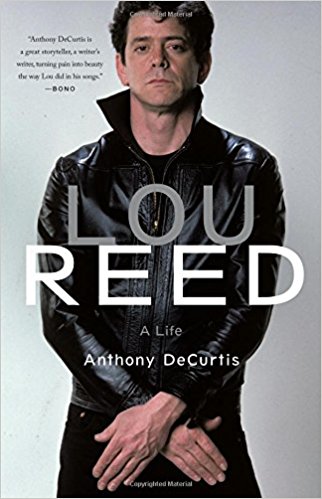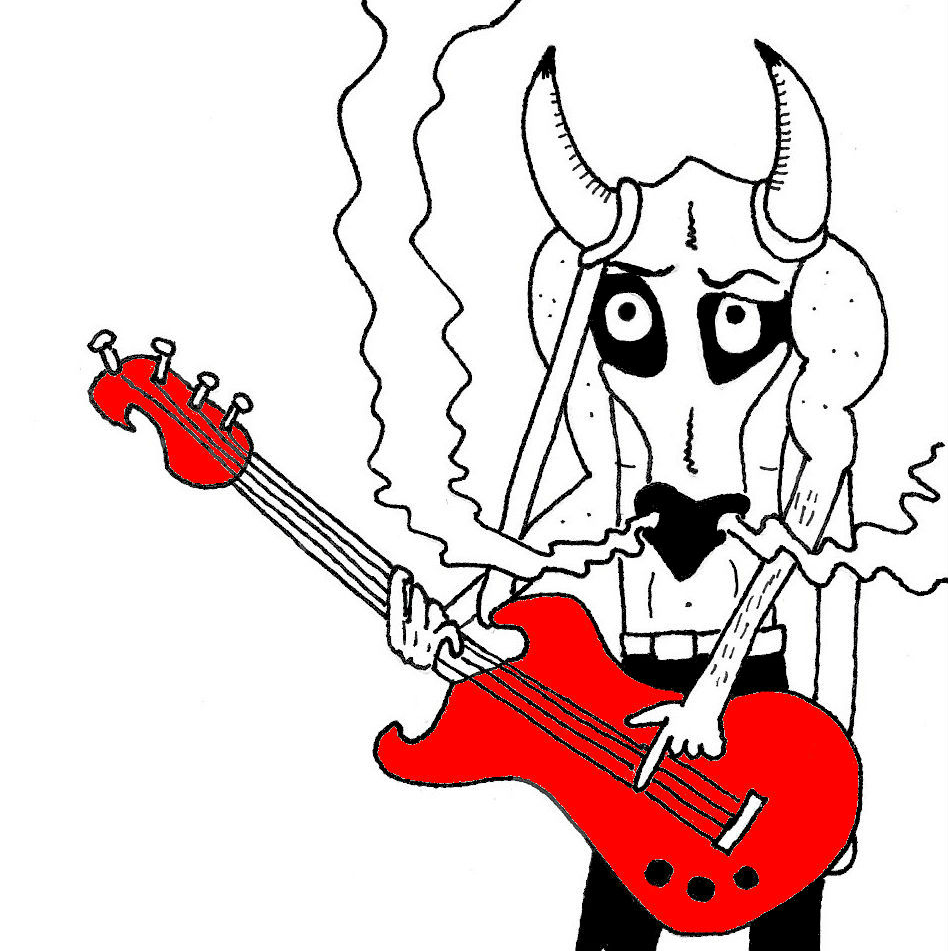
Lou Reed biography by Anthony DeCurtis [Little, Brown & Company]
Lou Reed had a complicated career. He lead a complicated life—complicated by design, perhaps. His music—his entire persona, seemed intended to antagonize. The Velvet Underground, a band Reed co-founded in 1964, was itself a big FU to the peace and love of the Flower Power movement. Reed’s solo work could also alternate between abrasive and oppressively dreary.
Birthed in artist Andy Warhol’s New York studio, the Velvet Underground was an obscure art performance group in a subterranean art scene. Virtually unknown at the time, VU would become one of the most influential rock groups ever. The hip factor Reed got from that band, as well as his early successes as a solo artist, with records like Transformer and Rock and Roll Animal, made him attractive to major labels. This was despite his never achieving the commercial success they, and Reed himself, thought he deserved and was capable of.
From the ’70s through his death in 2013, Reed collaborated with many different musicians and artists, from Anohni (formerly Antony Hegarty) to Metallica. Not all his projects were successful. Many, like Metal Machine Music (his 1975 double album of feedback and guitar effects) were rejected by critics and fans alike. Nevertheless, Reed’s loyal fan base was always at least curious about what he would do next.
A Troubled But Brilliant Life
In Anthony DeCurtis’s biography, Lou Reed A Life, we learn of Reed’s early years, his desire to become a great writer, the shock therapy he endured as a teenager growing up in suburban Long Island, his time with VU and each artistic period of his long career. His penchant for self-sabotage is evident as is his tendency to deal with personal relationships in a similar scorched-earth fashion. He was also notoriously prickly with journalists. Reed liked DeCurtis, however, which was a bit puzzling to the Rolling Stone writer, but it gave him access to both Reed and his friends and family.
For Reed rock and roll was serious business. It was art, and not just the pop art Warhol envisioned, but serious art that could examine the dark side of the human psyche. Reed broke rules, pushed boundaries, and dealt with topics of sexuality and drug use. The booze (scotch mostly) and the drugs (speed mainly) he consumed took their toll, as did the hepatitis C he contracted while a student at Syracuse University. That he avoided death before the age of 71 is nothing short of miraculous.
As much as Reed is admired as an artist, he was egotistical, combative, and distant. He regularly cast away friends and collaborators when he had no more use for them or when he perceived they were getting more attention than him. Reed was also a musical pioneer, an uncompromising artist, and a brilliant, if inconsistent songwriter, who continually pushed himself into new territory and rarely traveled trails already blazed. He left us a complicated musical legacy and a good life story.
Reviewed by Chris Auman
Read more music biography reviews:
Lexicon Devil: The Fast Times and Short Life of Darby Crash and the Germs
